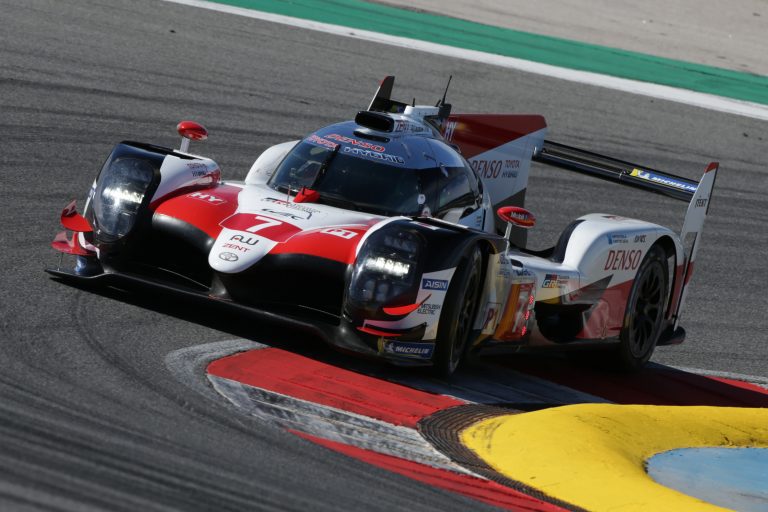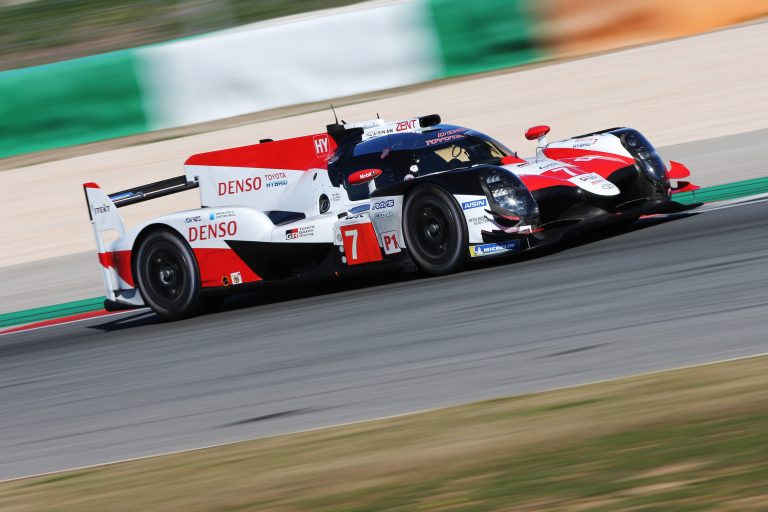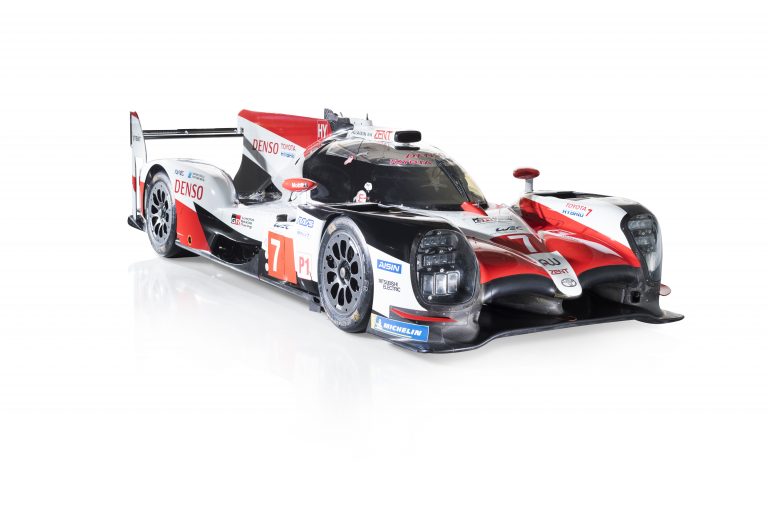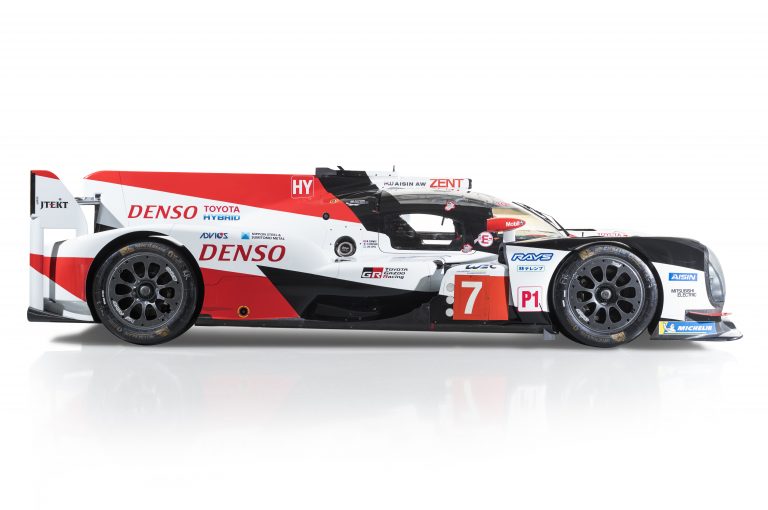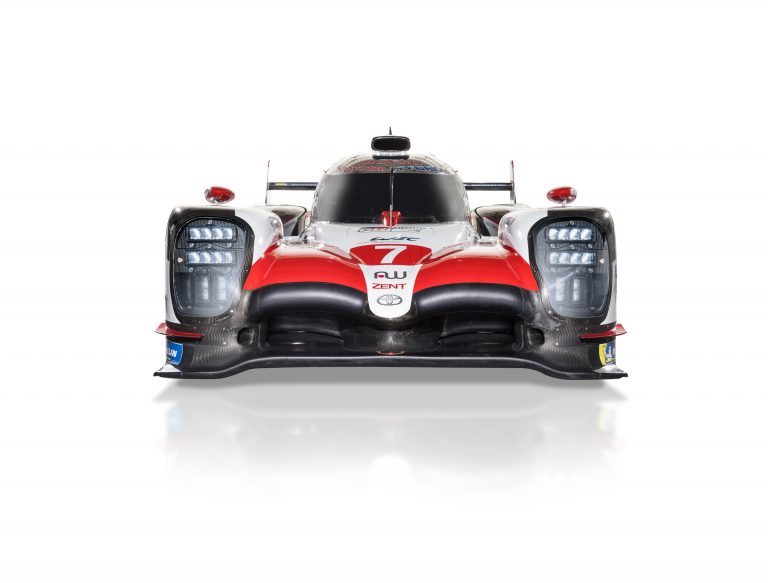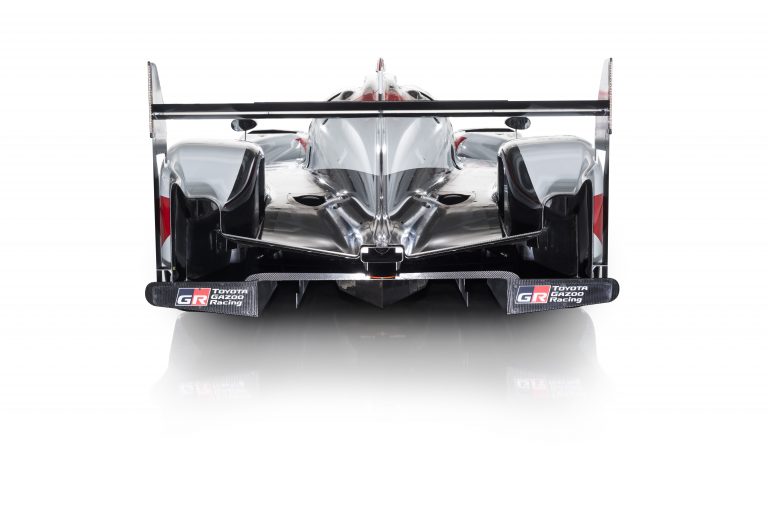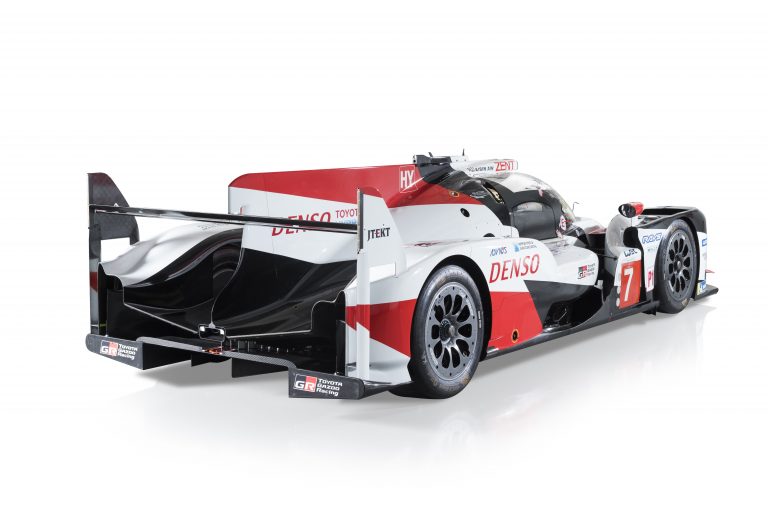Toyota Gazoo Racing Ready for New World Endurance Championship Season
Toyota Gazoo Racing will push the boundaries of hybrid electric power when they take up the challenge of the 2018-19 FIA World Endurance Championship (WEC). The upcoming season will have an extended calendar that will include two Le Mans 24 Hours races.
The team will be fielding an evolution of the TS050 Hybrid race car with which they won five races in 2017. The car was presented today at the Paul Ricard circuit in the South of France, the venue for a 30-hour WEC Prologue test session which will run from 10am tomorrow to 4pm on Saturday.
The 2018 TS050 Hybrid will compete in an eight-race season with a clear target of claiming victory at Le Mans, a feat that has proved frustratingly elusive for Toyota.
British driver Mike Conway, Kamui Kobayashi (Japan) and José María López (Argentina) will take on that challenge in the No7 car, while Sébastien Buemi (Switzerland) and Kazuki Nakajima (Japan) are joined by newcomer and double Formula 1 World Champion Fernando Alonso (Spain) in the No8 Toyota. Anthony Davidson (UK) will continue to contribute to the team in his new role as reserve and development driver.
Looking to the season ahead, Conway said: “I hope and believe we have the package and the team to succeed. The ultimate aim of course is to win Le Mans but we know from painful experience how hard this race is. The design team has been working on every millimetre of the car to be sure it is as light, fast and reliable as possible, plus the mechanics, engineers and drivers have been preparing themselves to handle unexpected events. The target is to find lap time and enhance reliability. So far I am feeling confident but there’s a long way to go.”
Although Toyota Gazoo Racing is the only major manufacturer entry in the series’ top LMP1 class, it faces an unprecedented challenge from its privately entered class rivals, who will be able to run with 69 per cent more fuel energy under new regulations. The Toyota cars’ fuel flow will also be restricted and they will also be up to 45kg heavier than their opponents. Toyota Gazoo Racing welcomes the challenge of proving the efficiency of performance of its hybrid electric powertrain in such tough conditions, contributing to Toyota’s mission to make ever-better road cars.
That mission was highlighted by the GR Super Sport Concept, unveiled at this year’s Geneva Motor Show. The concept car, which has been track tested, incorporates technology developed through the WEC project and features many parts taken directly from the TS050 Hybrid, including the 1,000hp hybrid electric powertrain and lean burn engine.
The TS050 Hybrid has already set new performance and efficiency standards, with last year’s fastest Le Mans lap achieved using 35 per cent less fuel compared to the team’s 2012 WEC debut. Advancements in powertrain technology contribute to race performance and production car technology.
Kinetic energy recovery is a key factor in achieving those improvements, with energy generated under braking harvested by powerful motor/generators on both axles and converted into electrical energy, which is deployed under acceleration to save fuel and deliver performance.
It is the same principle which has seen Toyota establish itself as the world leader in hybrid electric road cars, selling more than 11 million to date. As part of continuing efforts to develop people as well as technology, road car engineers from the Higashi-Fuji Technical Centre will again join the team to develop their skills.
The 1,000hp hybrid electric powertrain has been modified to strengthen reliability but elsewhere the car is largely the same as that which ended the 2017 season with three consecutive victories. Small but productive improvements to the aerodynamic package have been achieved within the strict homologation rules, while the 2018 car features a Gentex rear view camera, displayed on a screen inside the cockpit for the first time.
Having ended last season with the fastest car in the championship, Toyota Gazoo Racing’s goal is to finally defeat the unpredictable and arduous Le Mans 24 Hours as part of its fight for the WEC titles. That challenge begins at Spa-Francorchamps in Belgium on 5 May and will conclude eight races later at Le Mans on 15-16 June 2019.
TS050 Hybrid technical specifications
| Bodywork | Carbon fibre composite |
| Gearbox | 6-gear sequential, transverse-mounted |
| Driveshafts | Constant velocity tripod plunge-joint driveshafts |
| Clutch | Multidisc |
| Differential | Mechanical locking differential |
| Suspension | Independent front and rear double wishbone, pushrod-system |
| Springs | Torsion bars |
| Anti roll bars | Front and rear |
| Steering | Hydraulically assisted |
| Brakes | Akebono mono-block light-alloy calipers with carbon ventilated discs |
| Rims | RAYS magnesium alloy, 13 x 18in |
| Tyres | Michelin radial (31/71-18) |
| Length | 4,650mm |
| Width | 1,900mm |
| Height | 1,050mm |
| Fuel capacity | 35.2kg |
| Engine | V6 direct injection twin-turbo |
| Engine capacity | 2.4-litre |
| Power | 368kw/500PS/493bhp |
| Fuel | Petrol |
| Valves | 4 |
| Hybrid power | 368kw/500PS/493bhp (front and rear combined) |
| Battery | High-powered Toyota lithium-ion battery |
| Front motor | AISIN AW |
| Rear motor | DENSO |
| Inverter | DENSO |
ENDS

